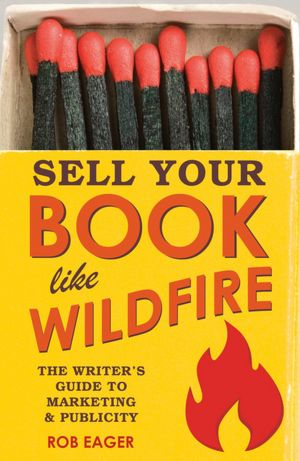Book Reading (and Writing): Is It a Fundamental Human Need?
I don’t like the term e-book very much. I’m not sure what it’s supposed to mean in the long run. We even have trouble defining what it means in book…
I don't like the term e-book very much. I'm not sure what it's supposed
to mean in the long run. We even have trouble defining what it means in book publishing
contracts.
Usually when I think of books, I think of a distinct
experience where I slow down and focus my attention on something
without filtering multiple streams of information or trying to accomplish an "items read" goal; it's a communion
between me and the author. When I think "book," that's what I envision, and
it matters little to me if I'm reading that book on paper, on a screen,
over someone's shoulder.
(Compare this to the experience of online-based reading: The Atlantic published a 2008 article asking if Google was making us stupid because it changes the way we read and process information.)
People much smarter than I are predicting that the way we experience books will transform into more of a social, interactive experience, or an enriched multimedia experience, with opportunities to read and comment on the "book" (or the content) and watch others comment and respond at the same time as we do. The catchy idea in publishing circles is that books are community-driven, and if you take this idea to its furthest reaches, then the book simply becomes a way for people to connect, quite remote from the traditional reading experience of digesting and reflecting in relative solitude (although my closest friends know how I love to read things out loud from New Yorker articles when I'm charmed or amazed).
I do wonder, though, if there will be two different paths for "books" (and it pains me that I'm putting "book" in quotation marks): books that tell stories and books that offer information.
It makes sense that nonfiction books meant primarily to inform can immensely benefit from being built on communities and having continual interaction/experiences, since information is always changing, being updated, being improved upon. There's always more to say, more to discover.
But books that tell stories (and I'm thinking primarily of novels), this is more about artistry and entertainment: While we may want to discuss stories after we've finished reading them, it's hard for me to envision the enjoyment of a story transforming into something we would not readily recognize today. Great stories require that you get lost in the experience (no matter the vehicle of that experience, even if it's listening to the story rather than reading it, or digesting it in chunks on a mobile phone).
It's the difference between being entertained (and to some extent escaping daily life), versus having to think, analyze, and study information (the process of learning, of education).
Recently I received a book written by 9-year-old Mia (The Conductor's daughter). As you can see from the photo above, the title is Cats Will Do Things You Won't Do. (For the curious, one of the things cats will do that you won't is triumph.)
Mia has written half a dozen books, loves to read books, and loves being read to. (The latest book that we're reading together is Alice in Wonderland, off my iPhone of course.) The other night she exclaimed (during the Oscars), "I love books! I hope there will always be books. I want to write books!"
Mia doesn't have an agenda. She doesn't know or care about the debates going on in publishing circles about the survival of publishing and what will happen to books. It doesn't matter to her if the books are on paper or on some gadget. All she cares about: (1) is the book fun to read, and (2) can she stay up late finishing her book without getting in trouble with her dad?
Yes, Mia, I hope there are books in the future. I am reasonably confident there will be—or if not books specifically, then stories that we experience. We will always want to enjoy stories (see some perspectives from Paul Auster and Scientific American here and here).
Jane Friedman is a full-time entrepreneur (since 2014) and has 20 years of experience in the publishing industry. She is the co-founder of The Hot Sheet, the essential publishing industry newsletter for authors, and is the former publisher of Writer’s Digest. In addition to being a columnist with Publishers Weekly and a professor with The Great Courses, Jane maintains an award-winning blog for writers at JaneFriedman.com. Jane’s newest book is The Business of Being a Writer (University of Chicago Press, 2018).









